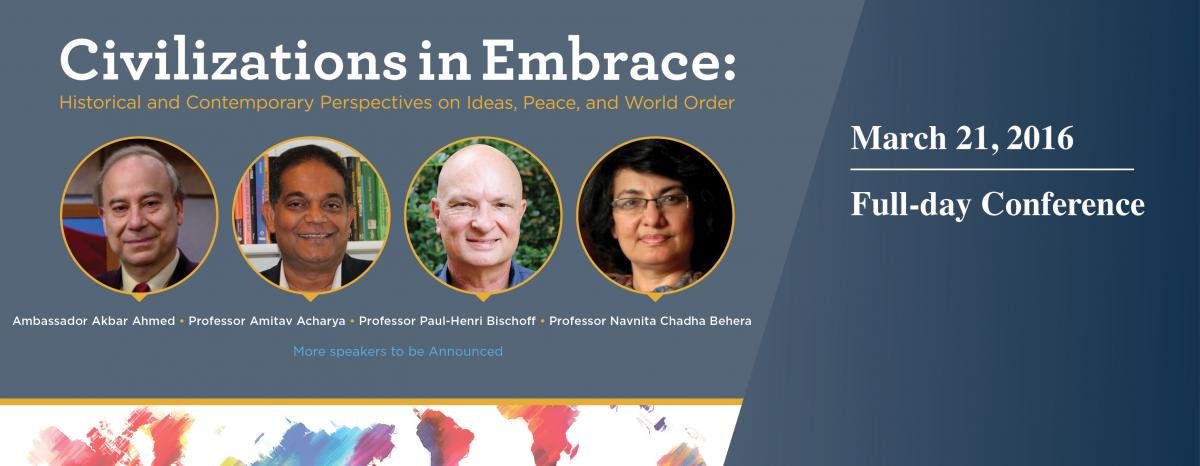About:
Samuel Huntington’s 1993 “Clash of Civilizations” essay, which provided considerable intellectual justification for the war on terror and blinded many people to its excesses, has received much attention and controversy. But this debate often sidesteps the richer and more complex set of questions about civilizations. What is the relationship between civilizations and power? Do civilizations always clash with each other or do they also (and perhaps more often) interact peacefully and engage in mutual learning?
One should not ignore the varieties of ways, including pacific ways, in which civilizations have borrowed and exchanged ideas and engaged in reciprocal learning both through history and in modern times. Some of the more important historical examples include the borrowings by classical Greece from the Egyptian, Mesopotamian, and Persian civilizations, by China and Southeast Asia from the Indian civilization, and above all, by the West, from the Islamic, Chinese, and Indian civilizations. A good deal of these inter-civilizational exchanges were peaceful in nature.
The history of civilizations may thus be told not in terms of blood, treasure, and conflict, but of convergence of ideas, identity, and mutual benefit. Today, civilizations continue to learn from each other. This is evident in the development and diffusion of ideas such as human development, human security, and responsible sovereignty, which were developed by non-Western policy intellectuals and actors in collaboration with their Western counterparts. Such mutual learning among civilizations is likely to accelerate as the non-Western countries continue to catch up with the West. Changes to the global distribution of ideas through the peaceful encounter among civilizations will increasingly accompany changes to the global distribution of material power in creating the possibility of a truly multi-civilizational and multiplex world order.
This conference is jointly organized by the Bahá'í Chair for World Peace at the University of Maryland and the UNESCO Chair in Transnational Challenges and Governance at American University, Washington, DC.
Speakers:
PROFESSOR MARGARET PEARSON
Professor of Government and Politics at the University of Maryland, College Park
PROFESSOR PAUL-HENRI BISCHOFF
Professor and Head of Department of Political and International Studies at Rhodes University in Grahamstown, South Africa
PROFESSOR NAVNITA CHADHA BEHERA
Professor in the Department of Political Science at the University of Delhi in New Delhi, India
PROFESSOR AMITAV ACHARYA
UNESCO Chair in Transnational Challenges and Governance in the School of International Service at American University, Washington DC; Former President of the International Studies Association (2014–2015)
AMBASSADOR AKBAR AHMED
Ibn Khaldun Chair of Islamic Studies in the School of International Service at American University, Washington, DC
Keynote: “Dialogue or Clash of Civilizations? The Global Community at the Crossroads”






